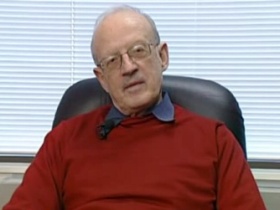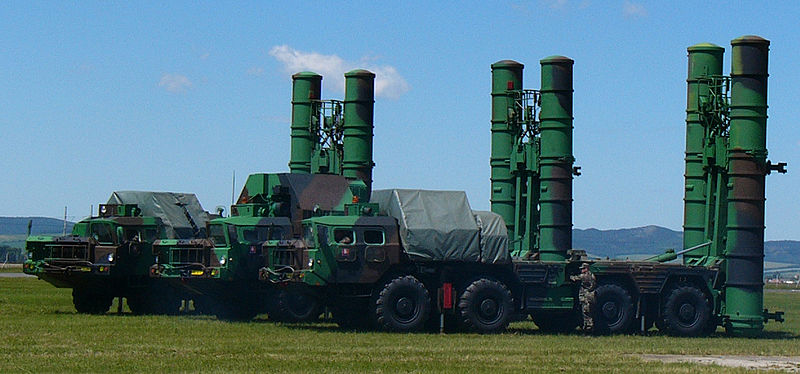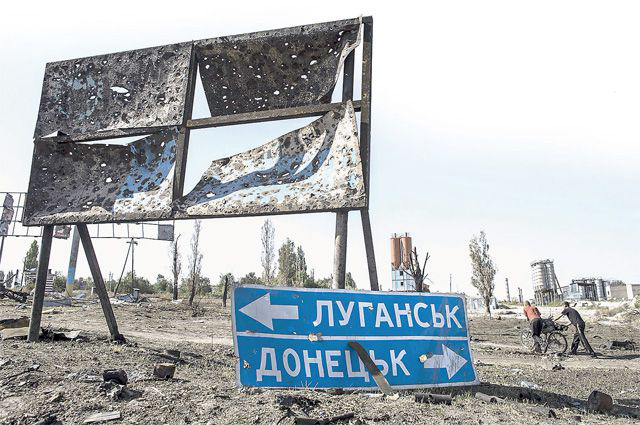
Vladimir Putin says his decision to sell S-300 air defense missiles to Iran will stabilize the situation in the Middle East, but an analysis by Andrey Piontkovsky strongly suggests that it will have exactly the opposite effect and drive up the price of oil and that that outcome is why Putin is taking this step.
On the one hand, the Russian analyst says, Israel is likely to feel compelled to launch a military strike at Iranian facilities in the near future before the Russian systems go operational, something that by its very nature could trigger a broader conflagration in the already unstable Middle East.
And on the other, he suggests, if Israel does not act now, the world is likely to confront a nuclear-armed Iran in the near term, something that could lead other countries in the oil-rich region to try to go nuclear and compel them to raise prices in order to earn the money needed to do so.
In either case, Putin and his regime benefit from oil prices that could rise to unprecedented levels, something that would allow the Kremlin leader to resume his grand bargain with the Russian people – high incomes in exchange for powerlessness – even as it undermines Western governments and their sanctions regime against Russia.
“Putin’s order changes everything in the region,” Piontkovsky says. It takes away from US President Barack Obama his chief argument in favor of the accord he and the Iranians have signed because once the S-300s are in place, Israel would not be able to attack the Iranian facilities, and the US could do so only with extreme difficulty.
Moreover, by his order, Putin has reordered divisions in the Middle East itself. At present, the Sunni states like Saudi Arabia are hopeful that Israel will take out Iran’s nuclear capability. But if Putin’s decision forces them to act, the consequence will be that many of these same states will again view Israel as their primary opponent and enemy.

The S-300PMU-2 Favorite (Russian С-300ПМУ-2 Фаворит – Favourite, DoD designation SA-20B), introduced in 1997, is an upgrade to the S-300PMU-1 with range extended once again to 195 km (121 mi) with the introduction of the 48N6E2 missile. This system is apparently capable against not just short range ballistic missiles, but now also medium range tactical ballistic missiles. It uses the 83M6E2 command and control system, consisting of the 54K6E2 command post vehicle and the 64N6E2 surveillance/detection radar. It employs the 30N6E2 fire control/illumination and guidance radar. Like the S-300PMU-1, 12 TELs can be controlled, with any mix of 5P85SE2 self-propelled and 5P85TE2 trailer launchers. Optionally it can make use of the 96L6E all altitude detection radar and 76N6 low altitude detection radar.
And Putin has changed the calculus in Israel as well. “A few months from now,” Piontkovsky continues, “for the first time in the history of the state of Israel, its fate and the life of all its citizens … will depend not on the willingness of its brave men and women to fight but on the mental state of several old mullahs inflamed with hatred for the Jews.”
The Kremlin leader wants the Israelis to act not only because of the problems it would cause for Israel and the US but also because it would bring the Arabs back onto the Kremlin’s side while driving up the price of oil from its current low levels, Piontkovsky argues.
Undoubtedly, he continues, Putin and his entourage are fantasizing about what would happen if Israel does decide it has no choice but to use force to prevent a threat to its existence. Oil prices would soar. “$150! $170! Lavrov will then decisively condemn Israeli aggression! A major terrorist act in the center of Jerusalem. $200! $220! Iran launches rocket strike against the Saudi oil platforms in the Straits of Ormuz. $250! $270 a barrel!”
The Russians have done what they could to bring this day closer, Piontkovsky says. “They have transferred to Iran technology, they have trained specialists, they have protected Iran for 15 years in the Security Council by preventing the adoption of harsh sanctions which really could have stopped the Iranian nuclear project.”
“And now, at the decisive moment,” he says, the men in Moscow “have thrown on the table their trump card,” one that if it works will earn them billions in oil revenues and ensure that they will remain in power “forever.”
There is a related tragedy that Piontkovsky does not address: Will the West and the United States stop lying to itself about Putin’s intentions not only in Iran but in Ukraine and elsewhere? Or will Western governments and the US in particular continue to talk about possibilities for “partnership” with a dictator who is anything but prepared to be a partner?








